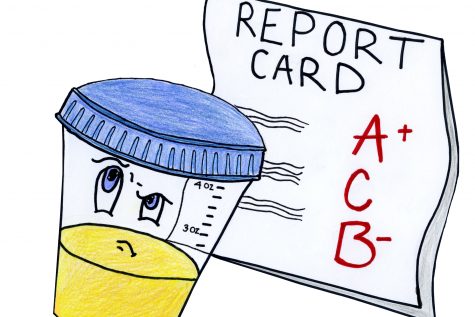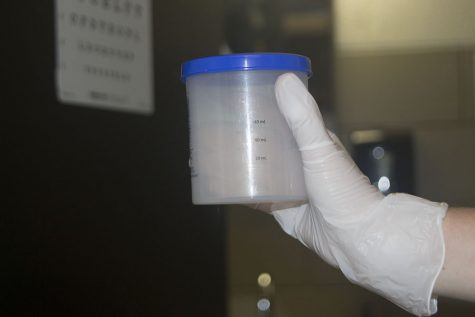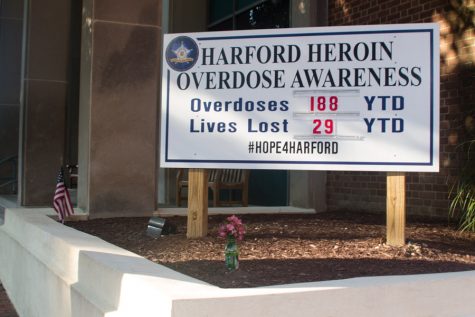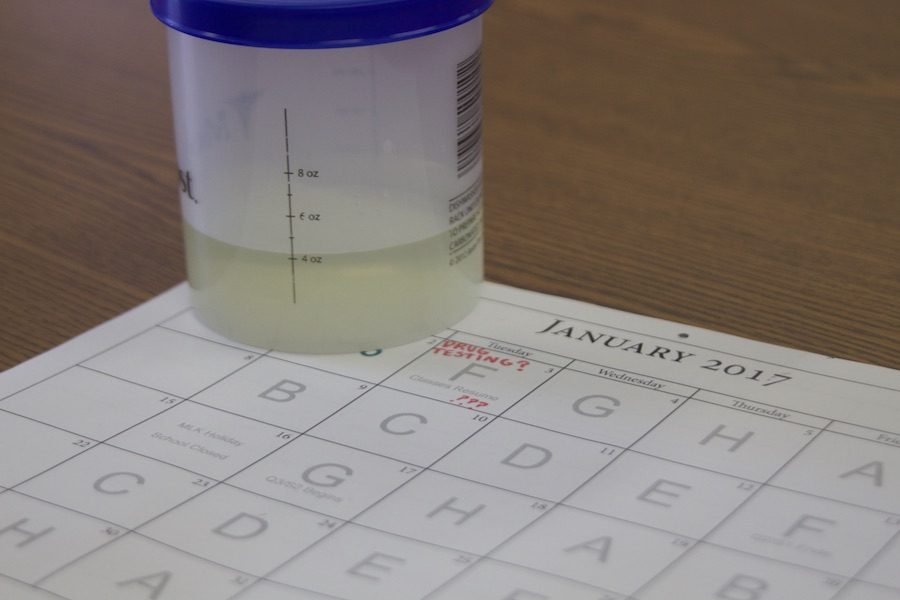Random drug testing begins no later than January
JC will begin randomly drug testing students in order to deter drug use by January 2017 at the latest. The 10 Panel Urine Test will be used to test for marijuana, cocaine, amphetamines, and opiate use.
The new random drug testing policy will be placed into effect by January at the latest, according to Vice Principal of Student Affairs and Technology Brian Powell. The testing is not expected to start any earlier than Nov. 28.
Powell wants to meet with each grade level individually before administering the first test in the hopes of fully informing the community on the nature of the tests and clarifying the policy itself.
“The goal [of meeting with each grade level] is to effectively communicate what we’re trying to do with the new policy,” Powell said.
Administrators have recently taken additional steps to discourage student drug use, such as having an assembly on Oct. 27 where recovering drug addicts spoke to each grade level about their struggles with addiction. However, administrators have not held an assembly explaining the new policy to students.
As a result, many students, like senior Logan Moore, are still unclear on the details of the policy. “Everyone says different things about the policy, and the administration hasn’t clarified anything. I honestly thought the assembly was going to be on the drug policy,” Moore said.
Students will be selected to be drug tested through a random number generator that will select a student’s ID number. Once selected, students will be tested by school nurse Michelle Webster.
The school will be using the 10 Panel Urine Drug Test to screen students. This test can determine the presence of 10 types of drugs in a person’s urine including marijuana, cocaine, PCP, amphetamines, and opiates.
If a student fails this first test, they will then be required to go to the Harford County Health Clinic for a confirmation test. If students test positive for drug use both times, there will be no punishment involved. Instead, students will be required to see a professional who will create a treatment plan for each individual student.
Families must report the student’s suggested treatment plan to the school and will be required to follow the plan, according to Powell.
However, there are some exceptions to this policy for students who are prescribed amphetamines for ADHD. If they were drug tested, these students would not pass, as their test would show that there are amphetamines in their system.
If their parents reported the use of this medication to the school in advance, as they are supposed to, students will not be required to receive a confirmation drug test if they fail the amphetamine aspect of the first drug test.
Regardless of the outcome of the test, the results will not be on anyone’s permanent record. “There’s no file, health, academic, or behavior record,” Powell said.
Administrators hope to address students’ questions during meetings with each grade level.
Grace Mottley is the Assignment Chief and Edward Benner is a News Editor for The Patriot and jcpatriot.com.






